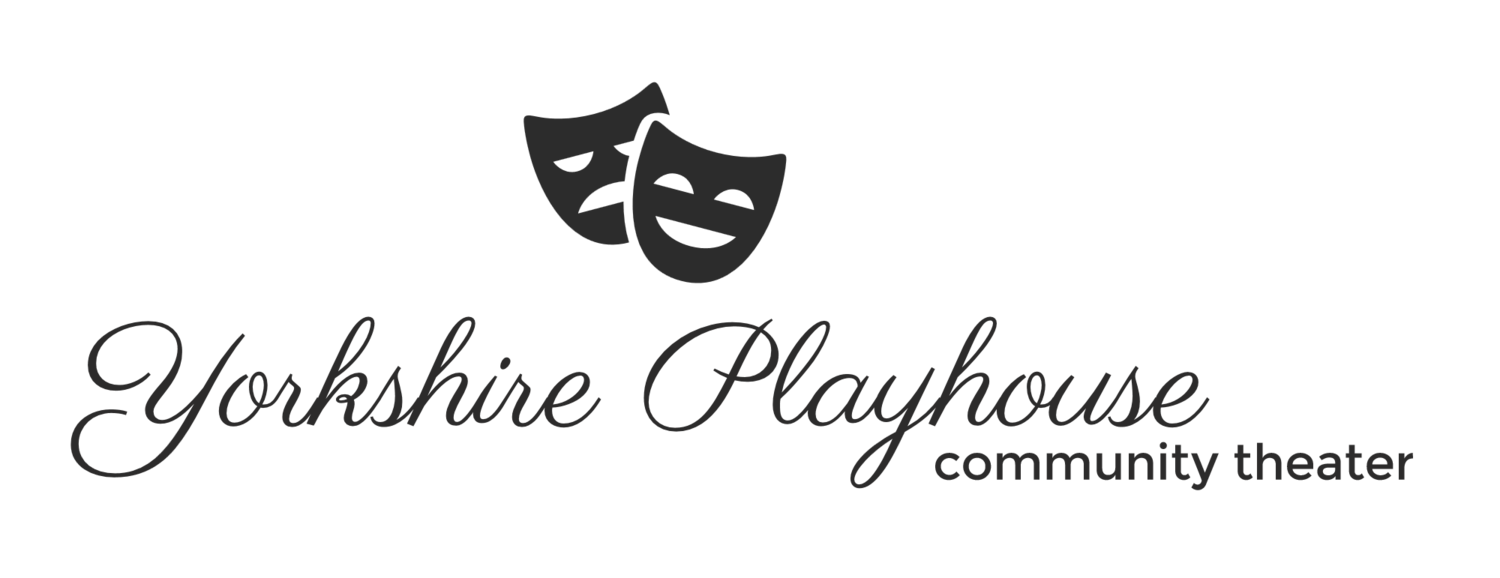Theatrical Superstitions!
/A single light left on in an empty theater.
There is no doubt that there are many different sayings, suspicions and traditions in the acting world. It may have to do with the obvious flare for the dramatic that draws people to live theatre, and that flare hasn’t missed the Yorkshire Playhouse. Today we are going to look at some of the sayings and superstitions that are known to all actors and some traditions that are specific to our own company.
Break a Leg
Have you ever heard actors says “Break a Leg” to each other and wondered what that meant? In the world of theatre, instead of saying “good luck”, actors will tell each other to “break a leg." The origin of the saying is not 100% clear, but many think it goes back to the ancient Greek practice of stomping feet instead of applauding, or the Elizabethan term for bowing (to "break the leg"). In Vaudeville, actors would not get paid unless they would break the leg of the curtain line and be seen, so it has been thought it could be attributed to paid actors. Finally, some even think it’s in jest; as some standby actors would say in hopes that the lead actor would literally “break a leg” and the standby would get their part.
Avoid Wearing Blue On Stage
In the early days of theater, it was extremely difficult to make blue dye and as a result it was expensive to purchase. Acting troupe companies that were failing would wear costumes dyed blue to show they were successful, when in fact they used the majority of their funds to purchase the dye, effectively bankrupting themselves. As a result, the color blue became synonymous with bad luck for costumes.
The Ghost Light
Being the superstitious lot that they are, many actors feel most theater houses are haunted by the spirits of actors who have gone before them. A light is always left on down center stage so the ghosts can be seen; however, it also has practical value because the backstage area is known to be cluttered with props, set pieces and costumes so a light comes in handy when actors are walking around in a completely darkened space. You wouldn’t want someone to trip over one of those items and, as a result, become yet another spirit to wander the halls of the Playhouse!
Flowers After a Performance
Who doesn’t love flowers, right? But an actor will always tell you, “Please no flowers until after the performance!” Actors are superstitious by nature and feel the flowers should be given as a result of a great performance. If they are given before the performance it could be a jinx, because they have not yet been earned.
Don’t say “Macbeth”!
This superstition is a result of years of stories related to tragedies that have allegedly occurred on the sets of the productions of Macbeth. According to legend, when Shakespeare wrote Macbeth, he got the words from a coven of real witches, who, after seeing the play weren’t impressed. Another says the props master from the original performance stole a cauldron from the same coven, and finally, that Shakespeare himself had a curse put on the script so that no one other than himself could direct it correctly.
In any event, actors avoid using it, instead referring to the play as ‘The Scottish Play’ or ‘The Bard’s Play’. If the name is spoken in a theater (unless the current show happens to be "Macbeth"), there are rituals that have to take place to help rid the curse. The person who said it is required to leave the theater building, spit, curse, and spin around three times, before begging to be allowed back inside. So if you happen to be driving by the Playhouse and see one of our actors running around the block, you might have a good idea that the “M” word was just said.
Yorkshire Playhouse Traditions
Here at the Playhouse we have our very own traditions. During every Summer Children’s Theatre there is a rubber pig that makes his appearance, and has for many shows. You may want to keep your eyes “squealed”, oops, I mean “peeled” for him in the next production!
And finally, during every production, there is one line that is usually made famous during the production, either because it gets the best laugh or the actor has managed to mess it up so badly onstage that it becomes famous in its own right. The back of the walls on stage are filled with lines from the many different plays, each with special meaning from the productions, coupled with the name of character who said the line. The people who wrote them and were in the productions have walls of memories and shared history which bring a sense of nostalgia that only people who have performed together in live theatre will ever understand.
This blog post was written by board member Tee Stephens-Christiansen.


